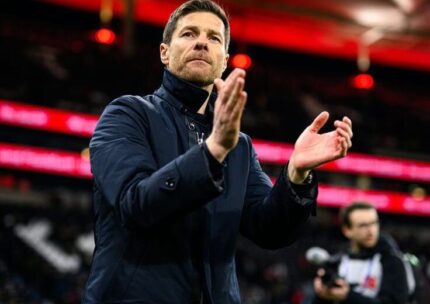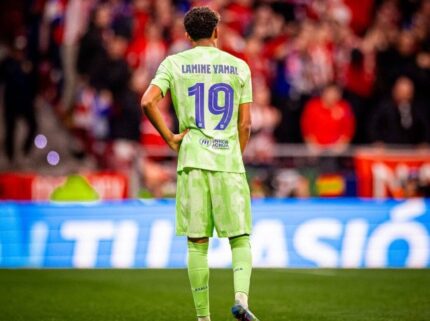Arsenal kicked off their 2024/25 Premier League season with a commanding performance against Wolverhampton Wanderers, setting the tone early with aggressive and precise play. Right from the whistle, Arsenal asserted their dominance, winning a free kick in the third minute through Gabriel Martinelli, who was brought down by Wolverhampton’s Jørgen Strand Larsen. The early foul highlighted Arsenal’s intent to control the game and put Wolves on the back foot.
The Gunners continued to press forward, creating opportunities through quick transitions and exploiting the flanks. By the sixth minute, Arsenal had already forced a corner, putting Wolves under pressure. Although Wolverhampton managed to block several attempts, including a dangerous shot by Matt Doherty, it was evident that Arsenal was dictating the pace of the game, with players like Oleksandr Zinchenko and Thomas Partey orchestrating from the midfield.
Defensive Solidity and Midfield Control: Arsenal’s Structured Approach
Arsenal midfield, anchored by Declan Rice and Thomas Partey, proved instrumental in maintaining control throughout the first half. The Gunners’ midfield duo not only provided defensive solidity but also contributed to Arsenal’s forward momentum. In the 14th minute, Partey set up Ben White for a long-range shot that was saved by Wolverhampton’s goalkeeper, demonstrating Arsenal’s ability to threaten from distance.
The midfield dominance was further showcased when Declan Rice won a crucial free kick in the 18th minute, a sequence that led to Bukayo Saka’s close attempt on goal. Arsenal’s midfield control kept Wolverhampton from establishing any meaningful rhythm, limiting their opportunities to counterattack. As the half progressed, the Gunners’ structured approach paid off, with their midfield breaking down Wolves’ play and launching counter-attacks that kept the visitors on their toes.
Arsenal’s Breakthrough: Kai Havertz Heads Home the Opener
The breakthrough came in the 25th minute when Kai Havertz headed Arsenal into the lead, converting a pinpoint cross from Bukayo Saka. The goal was a culmination of sustained pressure, with Arsenal continuously probing Wolves’ defense. Havertz’s goal was a testament to Arsenal’s attacking strategy, which focused on delivering quality balls into the box and capitalizing on set-pieces.
This opening goal not only lifted the Emirates Stadium but also highlighted the importance of Saka’s role as a creator. The young winger was a constant threat down the right flank, and his assist was a perfect example of his vision and ability to deliver in crucial moments. Havertz’s header to the top right corner left Wolverhampton’s defense and goalkeeper with no chance, underscoring Arsenal’s attacking prowess.
Defensive Resilience: Wolves Struggle to Find a Way Through
Despite being a goal down, Wolverhampton Wanderers struggled to find a way through Arsenal’s well-organized defense. Arsenal backline, led by Gabriel Magalhães and Ben White, remained resolute, withstanding the few attacks that Wolves managed to muster. Gabriel was particularly effective in dealing with the physical presence of Wolves’ forwards, while Zinchenko and Partey ensured that Arsenal retained possession and disrupted Wolves’ attempts to build any meaningful play.
Wolves’ best chance came in the 36th minute when Jørgen Strand Larsen’s header was saved by Arsenal goalkeeper. However, Arsenal’s defensive resilience ensured that Wolves were kept at bay, preventing any serious threats from materializing. As the first half drew to a close, Arsenal’s control over the game remained unchallenged, with the Gunners taking a deserved 1-0 lead into the break, setting them up for a promising start to the season.
Arsenal’s Dominance Continues: A Tale of Missed Opportunities and Tactical Fouls
The second half kicked off with Arsenal maintaining their 1-0 lead against Wolverhampton Wanderers. The opening minutes were marked by a series of fouls that disrupted the flow of the game. Thomas Partey was the first to draw the referee’s attention, committing a foul against Mario Lemina, which resulted in a free kick for Wolves in their defensive half. This was followed by a foul from Yerson Mosquera on Kai Havertz, giving Arsenal a brief respite and a chance to regroup.
Despite these interruptions, Arsenal intent was clear: they were pushing for a second goal to solidify their advantage. Kai Havertz, who was involved in multiple plays, came close to extending the lead with a right-footed shot from the center of the box that narrowly missed the target in the 50th minute. His effort was a sign of Arsenal’s aggressive approach, even though Wolverhampton’s defensive resilience was evident as they continually disrupted Arsenal’s rhythm with well-timed fouls and free kicks.
Defensive Battles and Arsenal Persistent Pressure
As the match progressed, the physicality of the game increased, with both teams committing fouls in their bid to control the game. By the 54th minute, Arsenal won a corner, and Gabriel Magalhães attempted a header from close range, but Wolverhampton’s defense was quick to block it. This moment epitomized the ongoing struggle between Arsenal offensive drive and Wolverhampton’s defensive stand.
Wolverhampton’s strategy seemed to focus on disrupting Arsenal’s build-up play, as evident in the numerous fouls they committed. By the 60th minute, tensions were high when Bukayo Saka received a yellow card for a foul on Rayan Aït-Nouri. Despite Wolverhampton’s efforts, Arsenal continued to press forward. Thomas Partey and Oleksandr Zinchenko were both penalized for fouls, but these disruptions did little to halt Arsenal’s momentum as they kept probing for a second goal.
Bukayo Saka’s Goal: A Moment of Brilliance
The breakthrough for Arsenal finally came in the 74th minute, thanks to a moment of brilliance from Bukayo Saka. After a sustained period of pressure, Kai Havertz assisted Saka, who delivered a clinical left-footed shot from the right side of the box, finding the bottom right corner of the net. This goal not only doubled Arsenal’s lead but also highlighted Saka’s importance to the team as a consistent and reliable scorer.
Following the goal, Wolverhampton made several substitutions in an attempt to change the dynamics of the game. However, Arsenal’s control of the match was evident, and despite Wolverhampton’s efforts to push forward, they struggled to create clear-cut chances. Arsenal defensive solidity, coupled with their ability to capitalize on key moments, kept Wolverhampton at bay for the remainder of the match.
Late Drama and Arsenal’s Tactical Discipline
As the match drew to a close, the intensity did not wane. Arsenal made strategic substitutions, including bringing on Gabriel Jesus, who quickly made his presence felt but was booked for a foul in the 88th minute. Wolverhampton, desperate to find a way back into the game, pushed forward, but their efforts were in vain. A late attempt by Pablo Sarabia was saved, and Daniel Podence’s shot in the dying moments of the match missed the target.
The final whistle blew with Arsenal securing a well-deserved 2-0 victory. The second half showcased their tactical discipline, defensive resilience, and ability to seize opportunities when they arose. Wolverhampton, despite their physical approach and moments of promise, were ultimately unable to break through Arsenal’s defenses, leaving them with a frustrating defeat. This result reinforced Arsenal position as a formidable force in the league, while Wolverhampton was left to reflect on their missed chances and tactical shortcomings.














